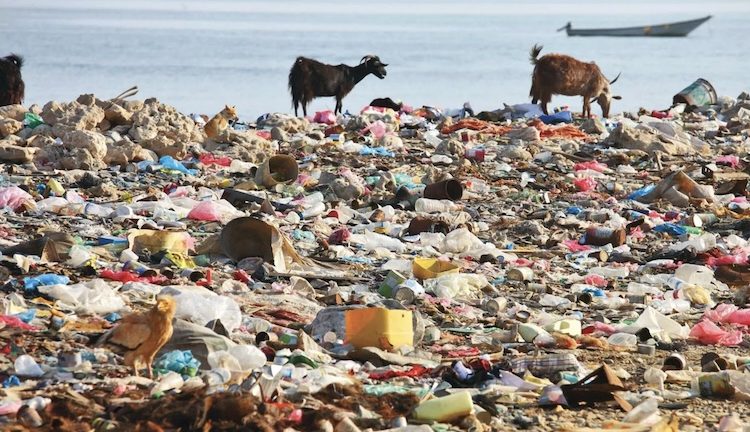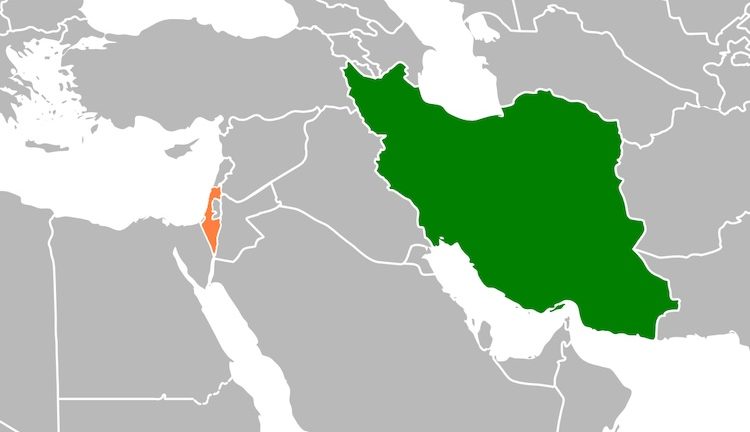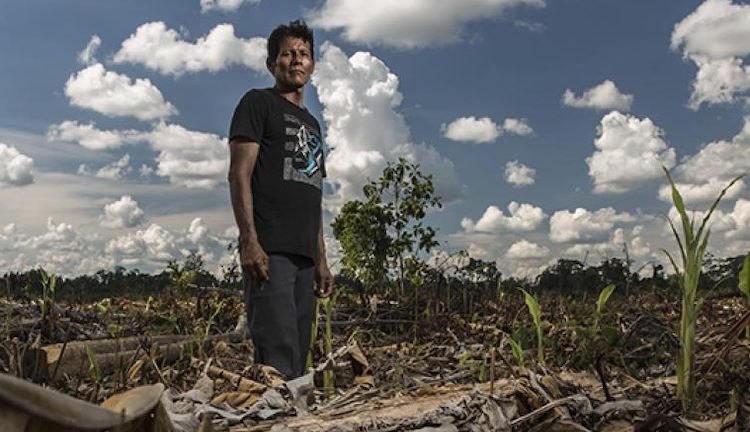By Meir Javedanfar* TEL AVIV | 19 April 2024 (IDN | ELN) — According to the UN’s International Atomic Energy Agency’s recent report, the Islamic Republic of Iran (IRI) currently has sufficient uranium enriched to 60% to build three nuclear weapons if it decides to do so. Building a nuclear bomb would provide the IRI […]
The Pitfalls of Investor-State Dispute Settlements Designed to Favour Corporations
By Pedro Labayen Herrera and Guillaume Long* PARIS | 19 April 2024 (IDN) — On February 9, less than 100 days into his transitional one-and-a-half-year term, Ecuadorian president Daniel Noboa announced an 11-question referendum on April 21. Amid a historic security crisis that has made Ecuador one of the deadliest countries in Latin America, Noboa […]
An International Treaty to Fight Plastic Pollution is Heading Towards its Final Run
By Thalif Deen UNITED NATIONS | 18 April 2024 (IDN) — The overwhelming threat of plastic pollution, mostly on high seas and oceans, has long been described as one of the world’s impending environmental disasters. “With a garbage truck worth of plastic entering the ocean every minute, the ocean has long been ground zero for […]
The Fall of Myawaddy Is the Latest Humiliating Defeat for Myanmar’s Military Regime.
By Jan Servaes BANGKOK | 18 April 2024 (IDN) — Operation 1027 has caused a change in Myanmar. Since October 2023, the advance of the anti-junta coalition of the Arakan Army (or AA, a mainly Rakhine group), the Myanmar National Democratic Alliance Army (or MNDAA, a predominantly Kokang group, a Han Chinese minority) and the […]
Are We Inching Towards a Third World War?
By Azu Ishiekwene The writer is the Managing Director/Editor-in-Chief of LEADERSHIP newspaper based in Abuja, Nigeria. ABUJA | 18 April 2024 (IDN) — This was the question a friend of mine in his late 20s asked me when we woke up on April 14 to the news that Iran had launched over 300 drones and missiles towards […]
Landmark Indigenous Rights Declaration Has Yet to be Transformed into Reality
By J Nastranis NEW YORK | 18 April 2024 (IDN) — The designation “Indigenous Peoples” is in itself a challenge, said Bolivian Vice-President David Choquehuanca, addressing the UN General Assembly at the UN headquarters, convened to commemorate the tenth anniversary of the World Conference on Indigenous Peoples. The outcome document of the historic meeting, in […]
Why Israel Should Take Its Time to Retaliate Against Iran
By Dr. Alon Ben-Meir* NEW YORK | 17 April 2024 (IDN) — Iran’s unprecedented aerial attack on Israel has upended the shadow war between the two countries and created new opportunities to contain Iran while creating a new regional alliance, which is the ultimate deterrent against Iran. Iran’s aerial attack on Israel in retaliation for […]
Kazakhstan to Supply 120,000 Tons of Oil to Germany in April
BERLIN | 17 April 2024 (IDN) — KazTransOil national oil transporter plans to deliver 120,000 tons of Kazakh oil to Germany this month, according to The Astana Times, the leading English-language news outlet about Kazakhstan and Central Asia. Between January and March, the volume of Kazakh oil delivered through the trunk oil pipeline system of […]
Wanted: A 21st Century Concert in Asia Involving China, Japan and India
By Jonathan Power* LUND, Sweden | 16 April 2024 (IDN) — The widespread perception that China is or will become soon an aggressive, expansionist power is simply wrong. It is propaganda, rather than fact, a kind of right-wing agitprop. Far from being an aggressive power, China is a defensive one, and has long been so. […]
Renounced by the Vatican, Yet the Repressive Force of 15th Century Persists
By William D. Sunderlin, Ph.D., and Robert J. Miller, J.D.* FAYETTEVILLE, New York | PHOENIX, Arizona | 16 April 2024 (IDN) — It seems ridiculous that a repudiated Catholic doctrine dating back to the 15th century should have legal standing anywhere in the world today. Yet the Onondaga, an Indigenous nation located in Central New […]










